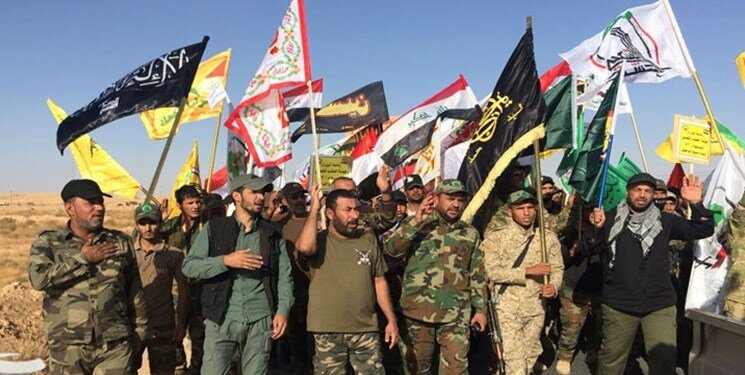
TEHRAN – In what appeared to be a concerted campaign of turning up the heat ahead of the potentially last round of nuclear talks in Vienna, the United States initiated a series of targeted measures against Iran possibly to pressure it into giving more concessions in the thorny issues that the negotiating parties have so far failed to make headway on.
The sixth round of Vienna nuclear talks, aimed at reviving the Joint Comprehensive Plan of Action (JCPOA), ended more than a week ago with some key issues still hanging in the balance. At the end of the sixth round, Iranian chief nuclear negotiator Seyed Abbas Araqchi underlined the need for the parties involved in the talks to make “serious decisions” in order to get Iran and the U.S. back to full compliance with the tattered nuclear deal.
He said serious decisions need to be made in the capitals of the countries which are parties to the talks in order to resolve key outstanding issues, according to an Iranian Foreign Ministry statement issued at the end of the latest round. Araqchi called on parties to the negotiations to adopt the necessary measures seriously, realistically and resolutely in order to protect and revive the JCPOA.
The top Iranian nuclear negotiator’s remarks were indicative of how tough the next round of talks would be because he made it clear that the seventh round would be successful only if all sides made a tough decision to forgo some of their initial demands.
But what are these demands? And how are they affecting the state of play between Iran and the U.S. in the region?
Apropos Iranian demands, the Iranian negotiators have clearly outlined what they want, which does not go beyond full implementation of the JCPOA with all its economic dividends. Iran demanded that the U.S. remove all the sanctions imposed, re-imposed, or relabeled by the Trump administration as these sanctions were primarily part of a broader design to make it hard, if not impossible, for the next U.S. administration to rejoin the JCPOA.
For its part, the Biden administration has demanded a commitment to engage in follow-on talks to bolster and expand on the existing JCPOA, but Iran has virtually ruled that out, saying they are only interested in renewing the 2015 accord, according to an NBC News report.
With the negotiating teams poised to return to Vienna for the seventh round of talks, resuscitation of the JCPOA seems as far away from being within grasp as it has been before the sixth round during which little progress was reportedly made. And this is mainly because the U.S. still insists on “lengthening and strengthening” the JCPOA while also refusing to lift all the Trump-era sanctions.
To break this deadlock, the U.S. seems to be resorting to elements of Trump’s Iran policy, which include regional mobilization and targeted strikes against the so-called Iran-backed groups. The Pentagon announced early Monday that it carried out airstrikes against Iraqi and Syrian targets in what it described as a “self-defense” move. “Specifically, the U.S. strikes targeted operational and weapons storage facilities at two locations in Syria and one location in Iraq, both of which lie close to the border between those countries,” the Pentagon statement said, claiming that the facilities have been used by Kata'ib Hezbollah (KH) and Kata'ib Sayyid al-Shuhada (KSS).
The Pentagon justified its move by saying that the groups targeted were “Iran-backed militia groups,” which “are engaged in unmanned aerial vehicle (UAV) attacks against U.S. personnel and facilities in Iraq.”
What made the airstrikes more suspicious is a move by the U.S. to block a number of news websites affiliated with Iranian state media or those of regional groups close to Iran. Last week, websites belonging to Iranian news media outlets, most notably the English-language Press TV and the Arabic-language Al Alam, as well as regional media outlets close to Iran, were blocked with a message showing that the websites were seized by the government of the United States.
Taken together, the U.S. measures against Iran can be construed as a U.S. message that Washington remains focused on combating Iran’s regional influence regardless of the JCPOA talks. And this, in its turn, sends another signal that if regional issues are not addressed whether in Vienna or elsewhere, tensions will continue to run high even after the JCPOA is revived in its original format. So, does the U.S. want to use this messaging to force Iran into making commitments that it will continue the discussions even after reviving the JCPOA? The answer to this vexing question may well determine the trajectory of negotiations in the coming days.
Whether Iran would change its position in the seventh round remains an open question. But the top Iranian nuclear negotiator said Iran has already made tough decisions to remain in the JCPOA and now it’s Washington’s turn to face up to the moment of making tough decisions.
“The Islamic Republic of Iran has already made tough decisions. When the United States withdrew from the JCPOA and Iran decided to stay in the JCPOA. It was Iran's big and difficult decision that led to the preservation of the JCPOA so far. Now it is the turn of the opposing parties, and according to the negotiations we had, they must decide and reach a conclusion on the revival of the JCPOA in order to reach an agreement,” Araghchi told Iranian state media after briefing lawmakers sitting on the National Security and Foreign Policy Committee on the Vienna talks on Sunday.

No comments:
Post a Comment